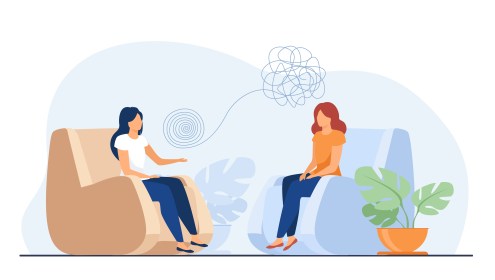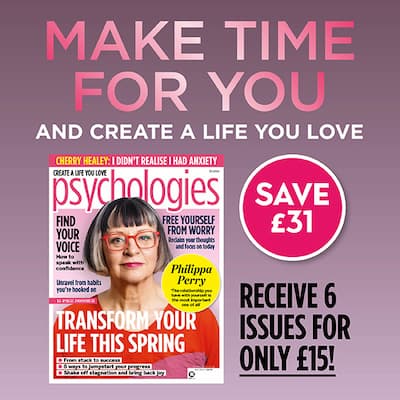How to make a good decision when you’re feeling stressed
Stress is a natural response in the body, and at times can be a useful signal. However, it is important to identify when stress could be motivating your decisions, and what you can do to remain calm, ensuring your decisions are made from a place of clarity. Tania Diggory, Founder and Director of Calmer, gives practical techniques to help you detach from the stress response and increase feelings of calm and shift your perspective through asking yourself three powerful questions.

Are you feeling stressed, anxious, or do you simply wish to feel a little calmer? If so, you’re not alone.
Whatever your circumstances behind these feelings, the first thing I’d like to do is reassure you that what you feel is valid. There is always a reason and a context behind every emotion we feel, so do your best to acknowledge that this is how you feel in this moment, without judgement.
Secondly, stress is a natural response in the body, and at times can be a useful signal – it can help you to focus, encourage you to take action and you can even feel proud of yourself after overcoming a stressful event. However, it is important to identify when stress could be motivating your decisions, and what you can do to remain calm, ensuring your decisions are made from a place of clarity.
The power of our state when making decisions
As human beings, we enter into different states of being all the time – from a sleepy state, to productive state, to feeling stressed, excited, calm, fearful, and everything in between. Research has highlighted that it is healthy to flow in and out of different states as opposed to being in one constant state for a long period of time, such as low mood, or hyperactive; either would end up feeling exhausting after a while.
With this in mind, it is important to enhance your self-awareness in order to tune into these states, and recognise when you may need to shift your state to help you, particularly in stressful situations.
When we make decisions from a place of fear, anxiety or overwhelm, it’s unlikely we will tune in to our rational and logical thinking, and we may not feel connected to our truest sense of self. Have you ever regretted a decision you made later on when you acted “in haste”? Haven’t we all…
What’s helpful about these experiences is we can choose to learn from them, and by taking a few small steps you can learn to embed healthy habits that empower you to respond to stress, rather than react.
Training the brain
The human brain is made up of trillions of neural connections, and these neural pathways operate for various different functions, from our behavioural habits, to our routines, and thinking patterns, etc. We strengthen some of these neural pathways more than others, and when we want to make a change, i.e. do something new or think differently, we start to strengthen new connections in the brain. In time, these changes begin to feel more habitual and routine-like.
Just like physical exercise, finding the right mental health exercises and activities can take a few tries, and also takes practice. We’re all different, and enjoy different experiences, and so I invite you to observe the following steps in a similar way to trying out an online yoga class, going for a run, or a cycle ride. All different practices and perhaps one, or even all, will have a repeated positive effect for you when practised over a long period of time.
Three steps to strengthen your mental muscles
Here are a few steps you can try the next time you’re feeling stressed and need to make an important decision.
1. Understand the signs of stress in your mind and body
Everyone experiences stress differently, and there are many mental, physical and emotional responses to stress. Start to tune into recognising what these signs and symptoms are like for you.
Do you feel your heart racing?
Do you sweat or feel shaky?
Is your breathing constricted?
Do you have a lot of whirring thoughts spinning around in your mind?
Do you feel tense?
Take a moment to stop whatever you’re doing to pause, breathe slowly and release, and listen to your body’s signals. Allow yourself a few moments to take notice before responding.
2. Get moving and become an observer of your thoughts
Shift your state by removing yourself from the situation, if possible.
Physically moving – either stretching, walking or choosing to do something different – will help to get the blood flowing through your body, and release positive hormones in the brain such as endorphins, which will enable you to feel a bit more positive and in control. To increase feelings of calm, take the position of simply noticing your thoughts as they come and go, being kind to yourself and removing judgement. Try completing the following phrases:
“I notice this is how I feel…”
“I notice this is what has happened…”
“I notice my response to this situation is…”
3. Shift your perspective
Language is incredibly powerful. By increasing your awareness of your internal dialogue, you can start to shift your perspective through asking yourself three powerful questions:
What is the wider context?
Assess the big picture of what is going on, and whether there are other factors at play that could be contributing to the stressful event. Try to continue observing as though you are analysing this for someone else – be curious.
Who can help me?
Sometimes we can manage on our own, and other times we may need to lean on others. If you’re feeling too overwhelmed, who can you turn to that you trust to bounce ideas with, and receive their perspective to help you too?
What choices do I have?
When you’re in a disempowered place, it can be easy to lose sight of the fact that you have a choice. We are making decisions constantly throughout each day, from the small things to the bigger decisions, and while we can’t always control circumstances in lives, we can choose how we respond to any situation.
Next time you need to make an important decision, give yourself permission to take a step back and ask yourself – are you deciding from a place of fear or a place of clarity?
About Tania
Tania Diggory is an entrepreneur, Mental Health & Wellbeing speaker and Founder and Director of Calmer, an award-winning training organisation that empowers entrepreneurs and purposeful teams to nurture good mental health and wellbeing. Author of This Is Calmer: Inspiration, support and encouragement for the entrepreneurial mind, and Working From Home: The Complete Calmer Guide To Remote Working, Tania has run three different businesses before the age of 30 and is passionate about raising awareness about the importance of balancing mental wellbeing with business success.
Alongside her team of associates at Calmer, Tania delivers online and in-person workplace training courses, events, and 1:1 sessions.
The Calmer team believe that happy minds make for happy businesses.
FREE! Download our free 40 page Beat Anxiety Lockdown Guide for strategies and techniques from the best experts on how to feel calm in these turbulent times.









